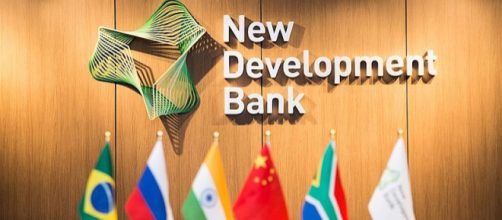Many organizations have begun to criticize the global institutions that have become powerhouses in the world economic market. The World Bank and the International Monetary Fund (IMF) have been under fire from developing countries’ leadership for decades for favoring giant corporations and Western politics, neglecting the developing economies of the global South. The Bank and the IMF went from stabilizing our world economy to creating a hectic system of trade and corruption.
BRICS band together
Tired of being neglected and watching their economies suffer, the leaders of multiple developing countries have come together to develop an organization aimed specifically towards stimulating the economies and promoting the development of their own countries.
Brazil, Russia, India, China, and South Africa make up what is being called BRICS: the leading developing states of the world. Together they have decided to break their dependency on the dated Bretton Woods establishments of the Bank and the IMF for financial support. These institutions have too long been the downfall of developing nations.
The funds from the Bank and the IMF come with many caveats and no incentives to build up the infrastructure and social services so desperately needed in these countries. In addition, they are managed by the leading economic powers of the world, like the United States and the United Kingdom.
The actions and implications of the Trump administration towards the rest of the developing world is causing a social and political uproar, taking time and resources away from the countries that need them the most.
Therefore, BRICS came up with their own solution to this problem: the New Development Bank (NDB).
Goals of the New Development Bank
With social and environmental health in mind, the NDB has created a focus on creating Sustainable Infrastructure in their own countries, as well as in other emerging economies. Their no strings attached loans are different from the money typical of the World Bank and IMF, whose loan agreements would entail a total restructuring of economic governance. Instead, the NDB will offer loans for infrastructural purposes only, to help developing nations build a better life for their people while at the same time creating a route for economic growth.
The NDB is a very new institution.
It was written into action on July 15, 2014, and still has a lot of things to work out before it can compete with the World Bank in the global market. Deciding what the development of sustainable infrastructure will look like, and how to best treat each country's individual needs are examples of the types of issues still under debate at the NDB's headquarters in Shanghai. While it has lofty goals set in stone, it will take time for the New Development Bank and BRICS to secure a foothold in the world’s economy and make a real difference in the lives and economies of developing countries.


